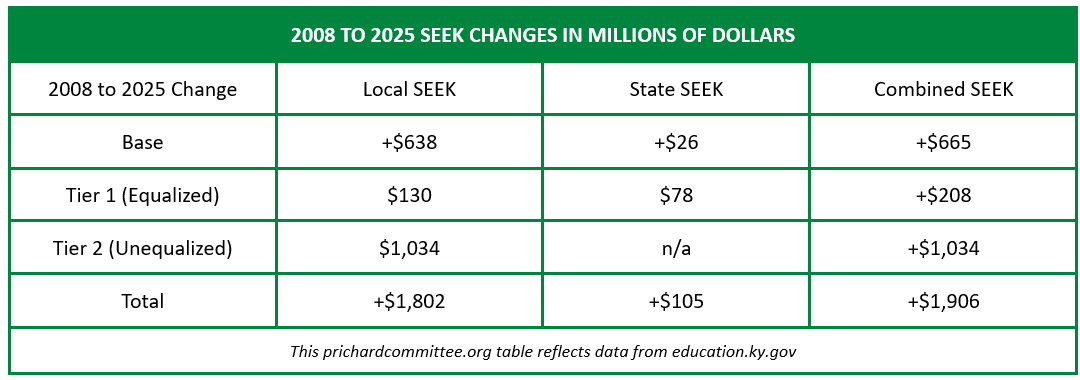Every year, thousands of high school students throughout Kentucky walk across graduation stages, diplomas in hand. It's a proud moment for families, educators, and communities. But what does that diploma really mean for the futures of these graduates?
Today, the Prichard Committee released findings from our 2024 Meaningful Diploma Employer Survey, offering key insights into how Kentucky's business community views high school graduates’ preparation. The survey, gathering perspectives from more than 600 employers and industry representatives across 20+ industries, comes at a critical moment as Kentucky business and education leaders examine what a Kentucky high school diploma should mean and what standards matter most.
This was the question that drove us to reach out to Kentucky's business community. We wanted to hear directly from the people who are hiring our graduates, working alongside them, and depending on their skills to drive our state's economy forward.
More than 600 employers across Kentucky shared their insights with us, and their message was clear: while we're getting many things right, there's work to be done to ensure a Kentucky high school diploma opens doors to real opportunities and equips graduates with the credentials and skills they need to succeed.
The World Our Graduates Are Entering
The postsecondary transition and workforce landscape has shifted dramatically. Today's high school graduates are making different choices than their predecessors did just a few years ago. More are heading straight into the workforce or combining work with further education. This makes it more important than ever that a high school diploma represents real preparation for success, whether a graduate's next step is college, career, or both.
What We're Hearing from Employers
The feedback from Kentucky’s business community is both concerning and hopeful: only about 1 in 8 employers feel strongly confident in our recent graduates' workplace readiness. As one manufacturing leader put it, "We see plenty of diplomas, but we're seeing gaps in both academic preparation and workplace readiness skills. Our graduates need stronger foundations in both areas to be truly prepared for success.”
Employers say they're seeing gaps in crucial areas like communication, critical thinking, and workplace etiquette – the kinds of skills that can make or break someone's career success.
The Good News: Employers Want to Help
Here's what's encouraging: Kentucky's business community isn't just pointing out concerns – they're eager to be part of the solution. In addition to the 21.8% of employers that say they already offer work-based learning opportunities like internships and apprenticeships, more than half of employers who aren't currently offering these experiences say they are very willing to. As one healthcare industry executive shared, "We see tremendous opportunity to partner with schools and help prepare students for real-world success. We just need better frameworks for making these connections.”

Building Partnerships That Matter
The enthusiasm is there – 83.7% of employers believe partnerships with schools are crucial for developing talent. But right now, fewer than 1 in 5 report having regular communication with local schools. As one regional business leader noted, "There's often a disconnect between how we measure success in education and what makes someone successful in the workplace.”

What This Means for Kentucky's Future
When we talk about making diplomas more meaningful, we're really talking about fundamental questions of economic opportunity and creating upward economic mobility. We're talking about the diploma serving as Kentucky's promise that every graduate is equipped to earn a living wage, support a family, and contribute to their community. We're talking about breaking cycles of poverty and building generational wealth. We're talking about strengthening our state's talent pipeline and making Kentucky more attractive to new businesses and industries. A Kentucky high school diploma must be a reliable signal that students have mastered not only academic subjects but have developed the durable skills and transferable knowledge needed to thrive in our rapidly evolving world.
Moving Forward Together
The full Meaningful Diploma Employer Survey Report provides actionable insights for strengthening the connection between education and workforce success in Kentucky; And solving it requires all of us: educators connecting classroom learning to real-world success, employers providing authentic learning experiences, policymakers removing barriers to collaboration, and communities supporting meaningful change.
While public education remains a critical public trust, careful calibration to meet today's challenges is required. As Kentucky education and business leaders work together to strengthen the meaning of a high school diploma, we must ensure our accountability systems and measures of success align with what employers value most – including durable skills, real-world application of learning, and authentic work experiences. Getting this alignment right means transforming Kentucky's high school diploma from a credential of completion into a trusted signal of genuine preparation.












